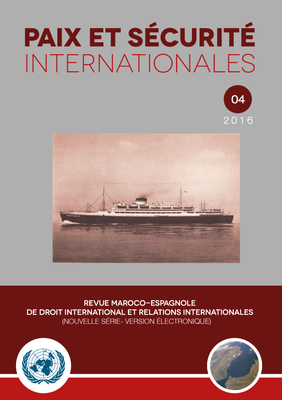Effets « pernicieux » de la paternité légitime marocaine en Espagne : une question à résoudre

DOI
https://doi.org/10.25267/Paix_secur_int.2016.i4.12Información
Resumen
Efectos perversos de la paternidad legítima marroquí en España: una cuestión a resolver
Resumen: : En el sistema marroquí, la protección jurídica del hijo depende del carácter legítimo de la filiación. Ciertamente, el cauce principal para determinarla es el matrimonio musulmán de los padres (hijos al firach), aunque existen otras vías: - el reconocimiento de la paternidad (istilhak de los arts. 160 a 162 CFM; - las relaciones sexuales mantenidas por error (subha contemplada en el art. 155 CFM); - los nacidos de uniones entre los progenitores que no pudieron validar sus matrimonios o cuando dichos enlaces fueron contraídos en el extranjero según la ley local (art. 16 CFM), para los cuales que el Gobierno marroquí acaba de prorrogar el plazo para realizar este tipo de acciones; el hijo nacido de noviazgo oficial (art. 165 CFM). Para afrontar los problemas de los hijos nacidos en España de relaciones extramatrimoniales, pondremos en evidencia cómo estas dos últimas vías son respuestas para la determinación de la filiación hispano-marroquíes, aunque habrá que evaluar los efectos maliciosos que contienen estas soluciones.
Palabras clave: Filiación legítima e ilegítima en Marruecos; obstáculos a la reclamación o la impugnación en la filiación hispano-marroquí; efectos «maliciosos» de la paternidad legítima marroquí en España.
Descargas
Cómo citar
Licencia
Copyright
Es condición para la publicación que el autor o autores ceda(n) a la Revista, en exclusiva, los derechos de reproducción. Paix et Sécurité Internationales es una revista que proporciona un acceso abierto inmediato a su contenido totalmente gratuito para lectores como para los investigadores que pretendan publicar en ella, ya que no se realizan cobros por concepto de envío, procesamiento ni publicación. Los usuarios podrán leer, descargar, copiar, distribuir, imprimir, buscar o enlazar el texto completo de los artículos publicados, o utilizarlos para cualquier otro propósito, dentro de la legalidad vigente. Y podrán hacerlo sin coste alguno, y sin necesitad de solicitar permiso al editor a al autor. Todo ello de acuerdo con la definición de acceso abierto de la Iniciativa Acceso Abierto de Budapest.





